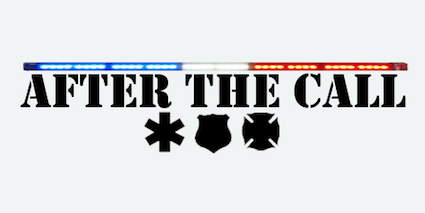1. Check in
Make sure you check in, perhaps more often than usual, with yourself or others. Identify and acknowledge any stress responses that you may be experiencing and move to navigate those effectively. These are unknown times, but certainly as First Responders we are at a heightened risk of getting sick. This should be a concern for us, but check to ensure that this doesn’t slowly become a something more. Often, though, these changes aren’t something we readily acknowledge as mental health related responses. Check for those red flags.
2. Maintain a care plan
This doesn’t mean beer binges or whiskey with cereal… sorry. Engaging in effective, non-avoidant styles of coping with our stress is more adaptive and helpful (both short term and long term). Eating well, moving your body (outside your work expectations) and connecting with loved ones or friends is important in times when isolation is not only easy, but recommended. Many therapists and programs offer phone/skype style approaches to care and you can utilize that during these times. Routines can be important to cope. Try to identify if you notice any changes in how you care for yourself or others – if routines are disrupted and self-care begins to slide, these could be red flags of more problems if they are not addressed.
3. Stay connected
Isolation outside of work is recommended. Therefore, the need for social interaction is going to be heightened, and we may all feel the cabin fever creeping in. Luckily, we are in times when we can stay connected virtually. This, of course, is not as good or effective in value as face to face interactions – but, where possible these virtual connections can play as a surrogate. Engaging with friends, forums, or other online platforms can be ways to gaining some semblance of social interactions. These are also great times to connect like the “good ole days” with family and maybe even engage with them face to face. Though, if you really like, facetime family members who are in the same room…. They hate that :)
4. Expect Stress
Unlike the times we are used to, where the calls are the unknown, we now have a very real risk of COVID. For most of us this will be the flu. But, obviously this is a large danger for certain population groups and therefore will also be devastating. There is little challenging in the way of cognitive restructuring (fancy terms for challenging our thoughts) because the worry we have for this threat is real, and perhaps imminent. But, this doesn’t mean we can’t do anything about it. Try not to get too lost in the sheer work volume during these times. Pay attention to how you are responding and take advantage of personal tools, partners, and any options organizationally you have to take breaks to gain some mental currency back. Keeping stress at bay is difficult – and certainly impossible to remove all or sometimes most, of it. This doesn’t translate into that we should stop trying. Follow the other 3 strategies as well as utilizing your own tried and true, or trying something new.
5. Be Proactive
Don’t wait until things are really bad to seek help or support. Seek it soon. Right now if you have too. The cost of waiting is always greater in the long run. It is much easier to navigate the start of stress related concerns when they are fresh and new, than it is to repair and heal from stresses that have not only already cut, but scarred and calloused as well. These are new times – so we can approach this problem in a new way. Proactively seek out those things that you know will help you navigate the stress, healthily, sooner than later. MAKE TIME. There is always a sacrifice that is made here, but that doesn’t need to be a negative. Sacrificing 30 minutes of T.V. for a 30 minute run is not a net negative and the benefits of stalling the one compounded with adding the other can do wonders for our brains. Helping us decompress after a hard day can, paradoxically, require doing something hard. Sometimes every atom and molecule and synapse will tell you otherwise. Fighting against that urge is a pursuit worth engaging. In Psychobabble, this is “acting opposite” and It could be the very tool that keeps you from falling prey to stresses negative impacts. Exercise isn’t the only tool here – hobbies, skills, other activities that bring joy and passion together are helpful to overcome those daily stresses.
